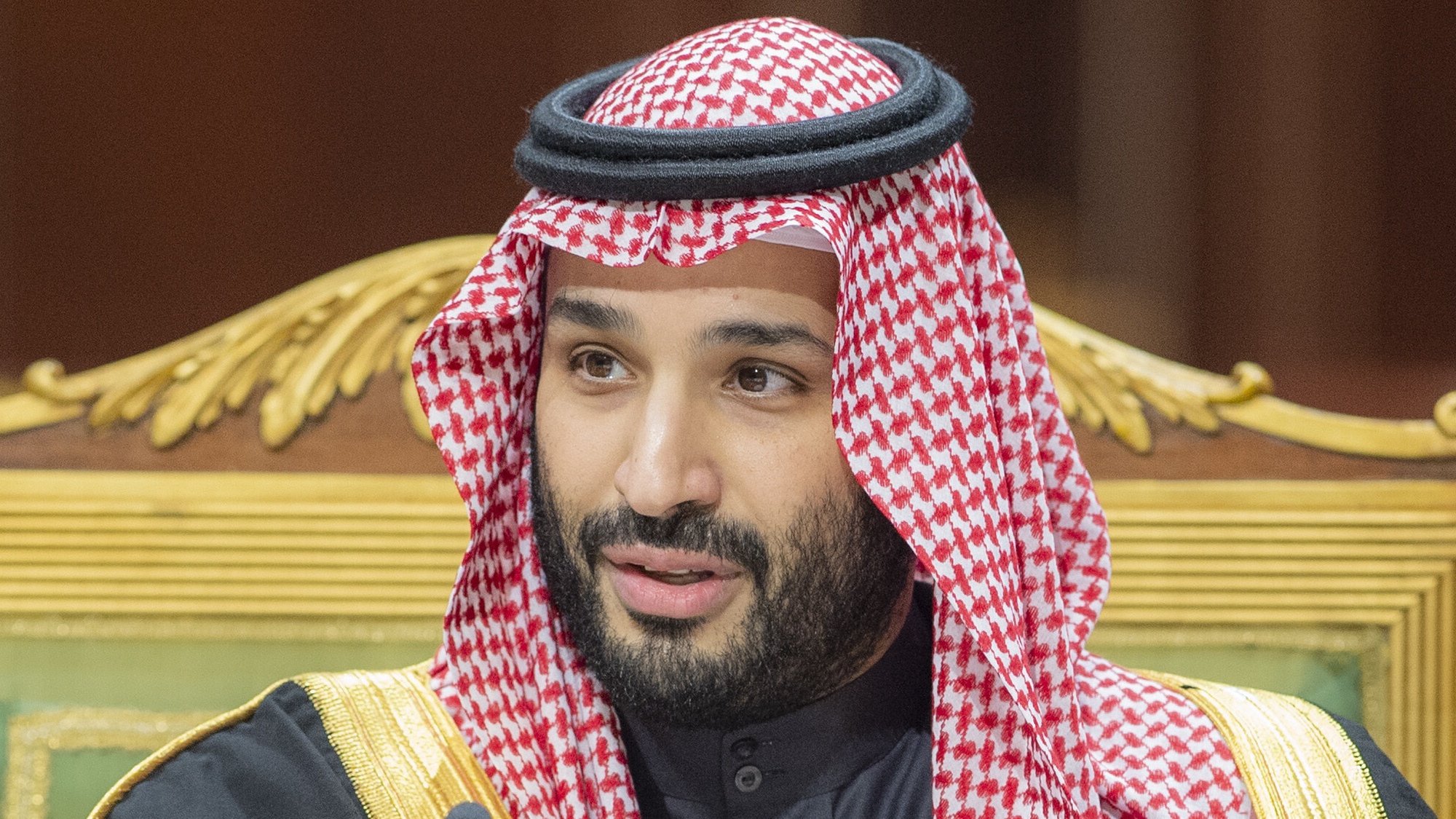Does Saudi Arabia hold the key to lower energy prices?
Boris Johnson due to visit Riyadh for talks as the UK seeks to reduce Russian energy imports

A free daily email with the biggest news stories of the day – and the best features from TheWeek.com
You are now subscribed
Your newsletter sign-up was successful
Boris Johnson is heading to Saudi Arabia and the Gulf states for talks later this week as the UK tries to wean itself off Russian oil and gas supplies.
The prime minister will be discussing the possibility of increasing oil production, although Downing Street officials have insisted the trip is “not finalised or confirmed”, reported Sky News. Reports of Johnson’s trip come after oil prices surged following the Russian invasion of Ukraine.
Fuel prices have reached “record levels” in the UK, topping £1.60 a litre for petrol and £1.70 for diesel, prompting calls from Conservative backbenchers for Johnson to “intervene” and “urge the Saudis to release more oil”, said the broadcaster.
The Week
Escape your echo chamber. Get the facts behind the news, plus analysis from multiple perspectives.

Sign up for The Week's Free Newsletters
From our morning news briefing to a weekly Good News Newsletter, get the best of The Week delivered directly to your inbox.
From our morning news briefing to a weekly Good News Newsletter, get the best of The Week delivered directly to your inbox.
Other European countries more heavily reliant on Russian gas also have plans to reduce their energy imports from the sanctions-hit country. Russian imports account for 65% of natural gas in Germany, for example, compared with just under 4% in the UK.
At a summit held last week, European Commission President Ursula von der Leyen proposed 2027 as a “firm end date” for reliance on Russian gas, oil, and coal imports for the EU, but national leaders have so far “balked” at agreeing on a concrete date, and instead asked the commission to put forward a plan in May, reported Politico.
Such is the importance of Russian energy imports that they are yet to be sanctioned despite a raft of other economic measures against Ukraine’s aggressor.
“Even before the Russian invasion of Ukraine, oil prices were high,” said DW. As the world continues to slowly recover from the Covid-19 pandemic, “higher-than-expected demand met sluggish supply from producers”, explained the news site. Now the war in Ukraine is pushing prices even higher.
A free daily email with the biggest news stories of the day – and the best features from TheWeek.com
Higher prices benefit Russia and negatively impact Western economies, making the search for other energy sources and other ways to counteract rising energy prices “even more urgent”.
The Saudi solution
As the world’s largest producer of crude oil, Saudi Arabia could form “part of the answer” to the energy conundrum the West is facing, said DW. The country and neighbouring United Arab Emirates (UAE) are “the only two major oil producers who could ramp up spare production comparatively easily”.
But that doesn’t mean Saudi oil could “quickly replace supply coming out of Russia”, said Karen Young, founding director of the Program on Economics and Energy at the Middle East Institute, based in Washington. “Increasing production does not mean increasing exports directly to Europe,” she told DW. “Oil markets are not that easily redirected.”
But in producing more oil, the Saudis could bring global market prices down, she explained.
However, the Organization of the Petroleum Exporting Countries, of which Saudi Arabia is a member, has a “long-standing policy of not changing production or supply on the basis of geopolitical events”, said Hasan Alhasan, a research fellow on Middle East policy for the International Institute for Strategic Studies in London.
“They only change in response to changes in market fundamentals,” he said.
A moral compromise
It is hoped Johnson’s “personal relationship” with Saudi Crown Prince Mohammed bin Salman, the Saudi de facto ruler, can be used to open the door to the Gulf states increasing oil and gas production, said The Times.
The prime minisiter has been “touted as a mediator”, said The Telegraph, after US President Joe Biden’s public criticism of Saudi Arabia as a “pariah” state, following the murder of journalist Jamal Khashoggi at the Saudi consulate in Istanbul in 2018.
It is true that “no G7 country has better links with the crown prince”, said The Times columnist James Forsyth. But the relationship “undoubtedly involves dubious moral compromises”, he continued.
The UK justifies its relationship with Saudi Arabia “despite its appalling record on human rights and its role spreading Salafist Islamist ideology” on the basis that “we cannot afford not to have the kingdom as an ally, that its friendship is essential to economic stability”. But if the British government cannot persuade Riyadh to calm the oil market, “then the whole point of the relationship will be called into question”, Forsyth continued.
Health Secretary Sajid Javid was forced to deny that the UK was “turning a blind eye to the world’s evils in order to keep the lights on”, as suggested by Sky News presenter Kay Burley during an interview over the weekend.
And reports of Johnson’s intended visit came as news broke that Saudi Arabia had executed 81 people on Saturday, for reasons including terrorism, murder and holding “deviant beliefs”, reported The Telegraph.
Javid said that under three Tory prime ministers, the government had “always had a very candid and frank relationship with Saudi Arabia”.
He continued: “Wherever there are human rights issues we have raised them with them and we can do that because we have this relationship. But we also have an economic relationship with Saudi Arabia, we’re not dependent directly as a country on their oil, but energy prices and access to energy is a hugely important issue.
“So I’m pleased that we can have this relationship with Saudi Arabia where we can talk about the human rights issues as well as our longer-term economic relationship.”
-
 Local elections 2026: where are they and who is expected to win?
Local elections 2026: where are they and who is expected to win?The Explainer Labour is braced for heavy losses and U-turn on postponing some council elections hasn’t helped the party’s prospects
-
 6 of the world’s most accessible destinations
6 of the world’s most accessible destinationsThe Week Recommends Experience all of Berlin, Singapore and Sydney
-
 How the FCC’s ‘equal time’ rule works
How the FCC’s ‘equal time’ rule worksIn the Spotlight The law is at the heart of the Colbert-CBS conflict
-
 Is the US in a hiring recession?
Is the US in a hiring recession?Today's Big Question The economy is growing. Job openings are not.
-
 Will Trump’s 10% credit card rate limit actually help consumers?
Will Trump’s 10% credit card rate limit actually help consumers?Today's Big Question Banks say they would pull back on credit
-
 Why Saudi Arabia is muscling in on the world of anime
Why Saudi Arabia is muscling in on the world of animeUnder the Radar The anime industry is the latest focus of the kingdom’s ‘soft power’ portfolio
-
 What will the US economy look like in 2026?
What will the US economy look like in 2026?Today’s Big Question Wall Street is bullish, but uncertain
-
 How will China’s $1 trillion trade surplus change the world economy?
How will China’s $1 trillion trade surplus change the world economy?Today’s Big Question Europe may impose its own tariffs
-
 Who will be the next Fed chair?
Who will be the next Fed chair?Today's Big Question Kevin Hassett appears to be Trump’s pick
-
 Would a 50-year mortgage make home ownership attainable?
Would a 50-year mortgage make home ownership attainable?Today's Big Question Trump critics say the proposal is bad policy
-
 How could worsening consumer sentiment affect the economy?
How could worsening consumer sentiment affect the economy?Today’s Big Question Sentiment dropped this month to a near-record low